French riders ready to make history at Tour de France Femmes
Sprinters, climbers and domestiques - the home riders will be all over their long-awaited Grand Tour
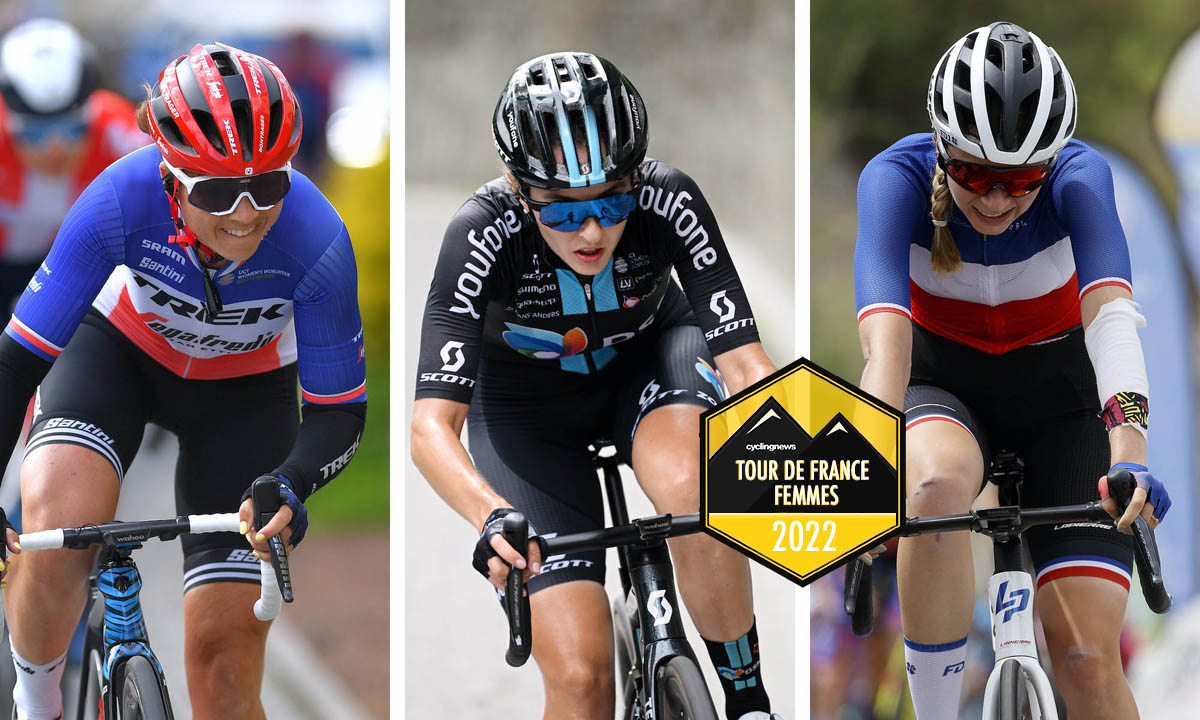
When the Tour de France Femmes avec Zwift gets underway this Sunday, it will be a special moment for the whole peloton, but few will feel the importance more than the French riders in its midst. Riders who have grown up spending every July watching the men’s Tour de France, hearing of the women’s versions decades ago, wondering if and when they might have the chance to ride the most well-known cycling race in the world. This year, those riders will finally have their Tour, and the French members of the peloton are ready to make their mark on the race.
Women’s cycling in France has had a long and varied history, which has included women’s Tours de France in the 1950s and 1980s, and produced stars of the sport from Jeannie Longo to Pauline Ferrand-Prévot. The French contingent of the peloton may not have always been as dominant as their Dutch or Italian opponents - for example, only one French rider, Catherine Marsal, has ever won the Giro d'Italia Donne - but things seem to be changing.
As well as the veterans of the peloton like Aude Biannic (Movistar Team) and Audrey Cordon-Ragot (Trek-Segafredo), a whole host of young climbers, sprinters and all-rounders are joining the ranks, and already winning at the sport’s highest level. The number of French teams is also growing year-on-year, both a cause and a result of the Tour de France Femmes, as sponsors realise the value of having a presence in the women’s peloton.
The pre-race conversation may have been largely dominated by talk of Annemiek van Vleuten vs Demi Vollering and Lorena Wiebes vs Elisa Balsamo, but the Tour de France Femmes is a long, eight-day race, with opportunities for every type of rider, and many more stories ready to unfold. With French riders lining up across the 24 teams and across all the different specialities, here are the home riders on which to keep an eye.
Labous, Muzic revel in Vosges
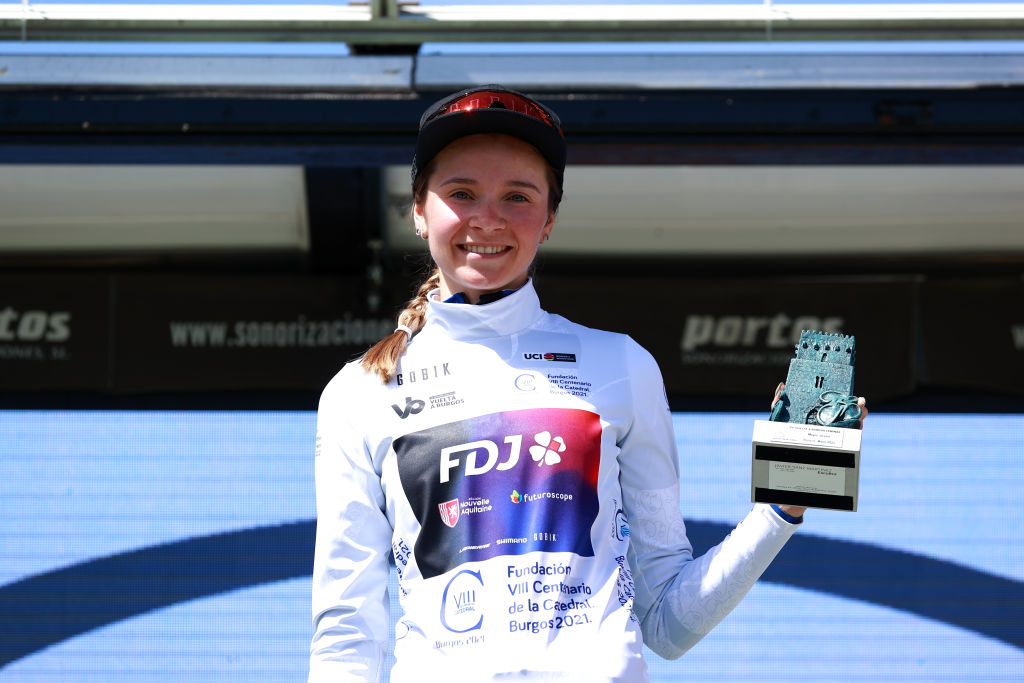
Like its men’s equivalent, the Tour de France Femmes features a significant amount of climbing that will no doubt decide the general classification. With Giro Donne winner Annemiek van Vleuten (Movistar) looking as strong as ever and Demi Vollering (SD Worx) poised to reap the benefits of months of preparation, the fight for the yellow jersey will be tough, but that’s not to say we won’t see French riders in the mix in the key GC moments.
The French rider who is best-placed to challenge the two Dutch favourites is Team DSM’s Juliette Labous, who heads to the Tour after a strong performance at the Giro Donne. Team DSM have split ambitions at the Tour, with Lorena Wiebes targeting the sprint days, but after winning atop the Passo Maniva in the Giro, it’s clear Labous is on excellent climbing form to lead their attempt at the overall.
Labous is one of the few riders that has been able to match and indeed beat Vollering in stage races this season, battling the SD Worx rider right to the top of the Lagunas de Neila climb in the Vuelta a Burgos to win the race overall. Though Labous lacks the punch that makes riders like Van Vleuten and Vollering great Classics riders too, the 23-year-old has the makings of a great GC rider. She does well on long climbs, and crucially, is able to back her performances over successive hard days. If she can stay safe in the tougher days as her team try to shepherd Wiebes to sprint wins, Labous should do well on the two big climbing stages and is a contender for the podium.
Get The Leadout Newsletter
The latest race content, interviews, features, reviews and expert buying guides, direct to your inbox!
As the only French team in the Women’s WorldTour, there will be a big focus on the newly-named FDJ-SUEZ-Futuroscope team when the Tour de France Femmes starts in Paris. Launched in 2006, the team has been a central pillar of women’s cycling in France for the best part of two decades. They won’t be starting this Tour with a French leader - Cecilie Uttrup Ludwig and Marta Cavalli are set to be the team’s numbers one and two - but they will have a strong cast of French riders supporting them.
One of the best climbers in the team will be 23-year-old Évita Muzic, the former French national champion and FDJ’s developing stage race star. After her breakthrough win on one of the hardest climbing stages of the 2020 Giro Donne, Muzic has continued to improve and performed well as FDJ’s leader in the Spanish block in May, finishing second overall at the Vuelta a Burgos. Since then, she won the Alpes Gresivaudan Classic, and finished third atop Mont Ventoux in the Dénivelé Challenge behind winner and teammate Cavalli. She had a low-key Giro in support of Cavalli, who finished second overall, but will certainly line up as one of the best climbers at the Tour de France Femmes.
Regardless of what opportunities Labous and Muzic are able to seize this year, two things are clear: there will be French representation on the toughest days of the Tour de France Femmes, and there is a promising crop of riders to contest Tours to come. As a teammate of Annemiek van Vleuten, Aude Biannic is of course fully committed to her Dutch leader’s GC ambitions, but even she is also hoping her compatriots perform well at their first home Grand Tour.
“Juliette is one of the best chances to do top 5 or podium on the Tour, I hope for her she can do it,” Biannic told Cyclingnews. “Also for Évita, she’s young so she can do something. She’s not the leader of the team, but maybe she can win a stage. She’s not for the GC this year, but for sure in the future we will see Évita try to win the Tour. And Juliette too because she’s also super young, so we have good French riders to play for the GC.”
Fast finishers Verhulst, Le Net
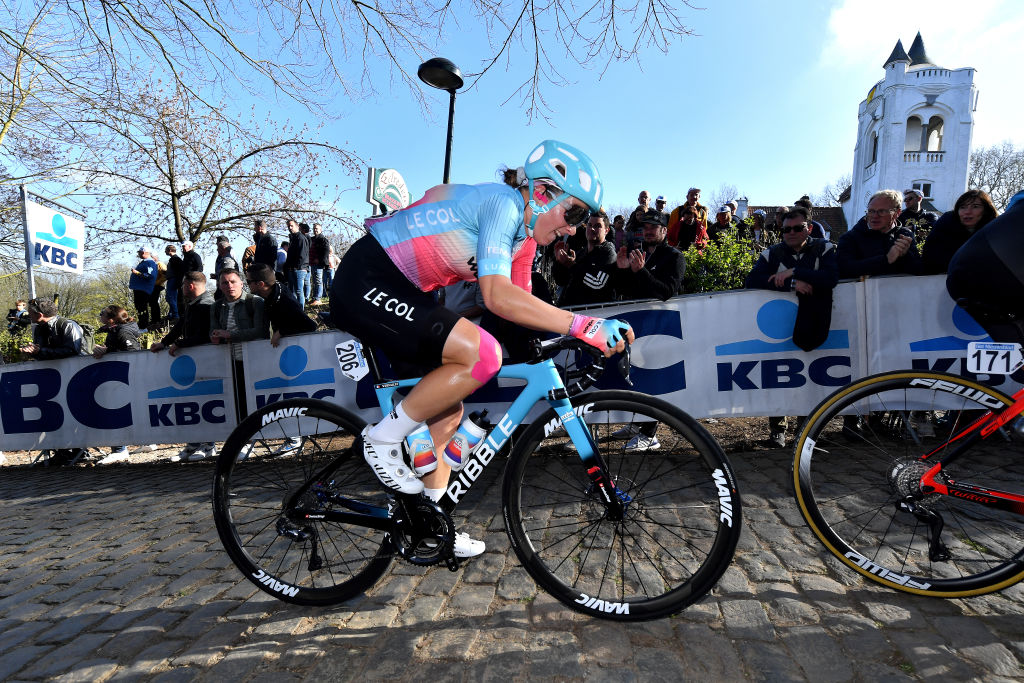
The overall victory may be the most coveted prize at the Tour de France Femmes, but with sprinter or puncheur-friendly stages dominating the first half of the week, it’s also a big goal for the faster women of the peloton.
After Muzic, FDJ-SUEZ-Futuroscope are only taking one other French rider from their increasingly-internationalised squad in the form of 22-year-old Marie Le Net. Though Le Net will mainly take on a domestique role, she has a fast finish and will be FDJ’s choice of sprinter on the flat days, particularly in the absence of Clara Copponi.
Le Net’s best result this season was seventh at the Tour of Flanders, and she’s coming into the Tour off the back of a string of top-10 results at Nationals, the Mediterranean Games and the U23 European Championships. Le Net is also a proficient climber, so should get through the harder days with more ease than the other sprinters, and her speed ensures the French team have all bases covered across the race.
As the only French team in the WorldTour, FDJ will no doubt receive a warm welcome, but the magnitude of the event - from the roadside fans to the corporate sponsors to the media and television coverage - means all the French riders are expecting an enthusiastic reception from the audience watching on the ground and around the world.
“It’s so big,” said Le Col-Wahoo’s sprinter-puncheur Gladys Verhulst. “It’s the top race for women in France. My family will follow me during the Tour, and lots of people follow me on Facebook and Instagram too. And of course the TV will follow us too, so it’s amazing.”
“I think it’s the biggest event in the world for the men, so I think it’s the same for the women - I think it will be the year’s biggest event.”
For Verhulst, whose team does not have a clear GC contender, the race will be all about taking opportunities and hunting stage wins, with the 25-year-old aiming at being in the mix in the early bunch finishes. Having won the Veenendaal-Veenendaal Classic in May, it’s the one-day style of racing that should suit Verhulst - perhaps the gravel day on stage 4 - but the team have several options to play in the first half of the race.
“The general classification is not for the team, because in the team, there is not a big, big climber and not a big, big sprinter, so it’s difficult for us,” Verhulst said. “But for me, my goal is some stages. I don’t know which ones yet, I’ll speak with Nico [Marche, team DS] about that, but the start of the Tour will be for me. It’s very open.”
The recurring theme among the French riders is that whilst the Tour de France Femmes is a big goal for the whole peloton, it’s extra important for the home riders, and this is no different for Verhulst.
“I think it’s my second goal of the year, after the Nationals [where she finished second]. I’m very determined, and I’m almost ready for it,” she said. “I’m a little nervous. At the moment, not a lot, but maybe in a few days. Next week the pressure will be more.”
Cordon-Ragot, Biannic, Fournier can do it all
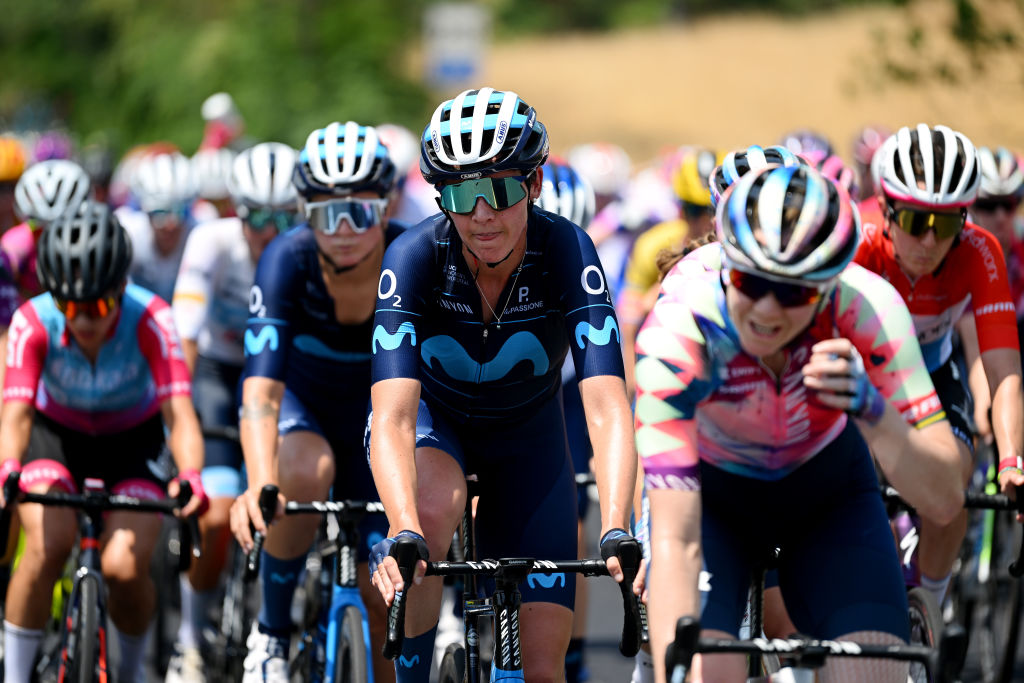
The riders who chase stage victories and strong overall performances may be the ones that make headlines, but there’s also a contingent of riders who will do invaluable - but perhaps less celebrated - work across the week in support of their teammates.
Perhaps the most important French domestique of all is Aude Biannic (Movistar), who will take the start in Paris with the goal of helping her teammate Van Vleuten pull off what would be an historic achievement by winning the Giro and the Tour back-to-back. Whilst the double is the goal, Biannic says that even in its first year, the Tour de France Femmes is already the more important of the two longest races on the calendar.
“I’m more excited because we won already the Giro, so it’s something done,” Biannic said. “It’s not a bonus because for sure it’s more important to win the GC on the Tour, but we have a lot of motivation and we know we can do it.
“I think it’s one of the most important races of the year. Not only because I’m French, but also because for the men it’s a big race and it’s the same organisation.”
For a race to be so important before it’s even been held once is rare, but when that race carries the Tour de France name and has the support of ASO behind it, the attention and prestige was always going to be there from the get-go.
“I think it’s more pressure, with the media and all the TV. I think with the Giro, it’s a big race, but it’s not the same,” Biannic explained. “With the Tour it’s the same organisation and the media are on the race so for sure it’s a big pressure. More for Annemiek, but for the team also because when you go to win, we put a lot of pressure on all the team.”
Despite the pressure, 31-year-old Biannic has a level head about the race, and says she is hoping to be able to enjoy the experience as well as support Van Vleuten in her attempt at victory.
“Now the most important thing is recovery because the preparation, I think it’s done,” she said. “You need to be fresh for the Tour because it’s eight stages and for sure it’s not easy when you need to help someone every day and prepare yourself for the stages, so the most important thing is to be prepared for the fight.”
Van Vleuten’s main rival Vollering will also lean on a French teammate in her tilt for the yellow jersey, as Roxane Fournier brings wisdom and experience to SD Worx’s Tour team. Though riders will have spent months fine-tuning their training and tactics to try to win the Tour, there’s something to be said for having the support of a teammate who has been around the block, and raced for years at the highest level. The race is new for everyone, and the pressure will be heavy on Vollering’s 25-year-old shoulders, but there are few domestiques more committed than Fournier. The 30-year-old’s job at the Tour may not be as visible to those going for stage wins, but will certainly be key for SD Worx.
Perhaps the well-known French rider in the peloton - made even more conspicuous by the fact she will start the Tour wearing the national champion’s jersey - is Audrey Cordon-Ragot. The Trek rider is a veteran of not just French cycling but women’s cycling as a whole, and will finally, in her 15th season as a professional, have the chance to race the Tour de France. Like Fournier, Cordon-Ragot brings heaps of experience to the team, and will have a varied role at the Tour.
Without a top-level climber in their ranks, Trek-Segafredo are taking a multi-pronged approach to the race, targeting sprints with Balsamo, harder days with Elisa Longo Borghini, and why not breakaways with the rest of their talent-packed team? Cordon-Ragot is in excellent form, having just won both the time trial and road race at French nationals, and finishing third overall at the Baloise Ladies Tour. She will definitely have team duties to fulfill, but it would be no surprise to see the tricolore jersey on the attack at some point next week.
Cofidis leads French teams
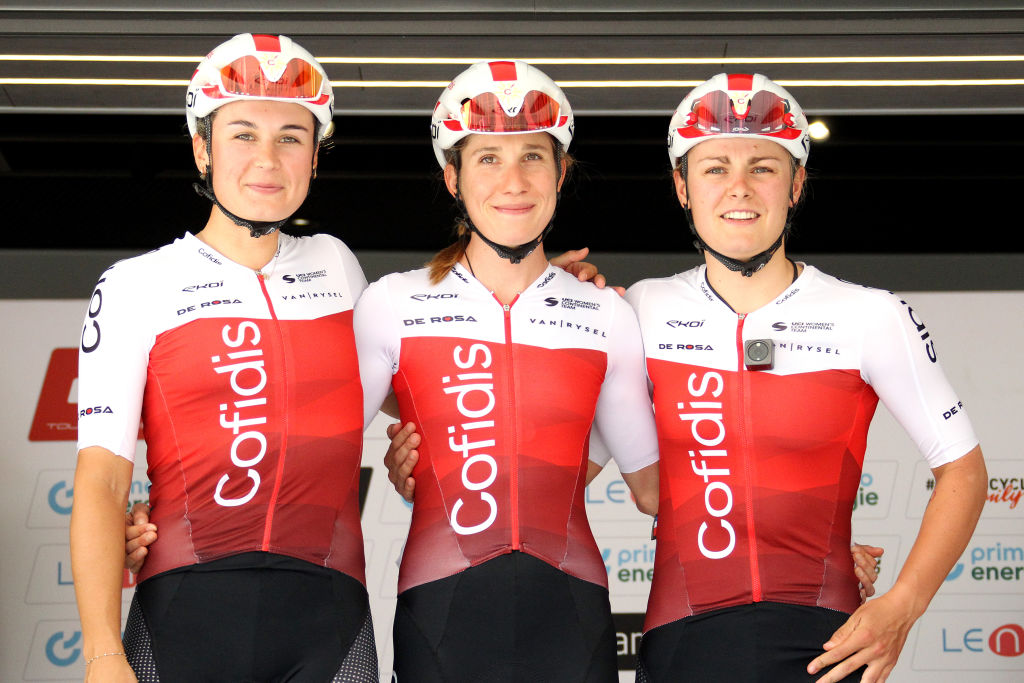
As well as the growing contingent of French riders scattered across WorldTour teams, ASO have replicated the time-honoured tradition from the men’s race of inviting four French Continental teams. Arkéa Procycling and Cofidis are perhaps expected inclusions - both teams ride a significant WorldTour calendar usually - but Stade Rochelais Charente-Maritime and St Michel-Auber93 are true wildcards, small teams being given a chance in the biggest of races. For St Michel-Auber93, the step is particularly huge: the Tour will be only their second WorldTour race ever, their first being RideLondon in May.
With the GC and the bunch sprints possibly an ask too big for the four French continental teams, most of these squads will start the Tour with breakaways and top-10s in their sights. Cofidis may have the best chance at the overall, albeit with the German climber Clara Koppenburg not a French rider, and will unfortunately be missing one of their best riders Cedrine Kerbaol, who injured her ankle pre-race. But even without big favourites, these teams certainly won’t be lacking in motivation to show themselves on the world’s biggest stage.
What is perhaps more important for the French teams, though, is what the Tour de France Femmes will mean for them and for women’s cycling in France. The effect is already being seen: new teams, new sponsors, even new races. If this is already happening before the race enjoys its first edition, the long-term effect on French cycling could be transformative.
“I’m pretty sure the Tour de France will help a lot of teams because sponsors like Omega now come to the teams,” Biannic said. ”Also almost all the men’s teams have women’s teams now, so in France it’s very important towards the Tour de France. We have at the moment FDJ and Arkéa, and maybe in the future every men’s team will have a women’s team. So for sure the Tour helps a lot for the sponsors, for the teams, for it’s very important for developing cycling in France.”
For riders like Biannic, Cordon-Ragot and Fournier, the arrival of the Tour de France Femmes may feel like the end of a journey: a milestone finally ticked off, the culmination of a long campaign to have this big race back. But for their younger compatriots, the race very much marks the start of the next step in French cycling. The beginning of a limitless set of opportunities and fertile ground for the next generation of riders to develop and grow.
The French riders will want to leave their mark on this year’s race, but their hopes for the Tour de France Femmes will stretch far beyond this July.
Matilda is an NCTJ-qualified journalist based in the UK who joined Cyclingnews in March 2025. Prior to that, she worked as the Racing News Editor at GCN, and extensively as a freelancer contributing to Cyclingnews, Cycling Weekly, Velo, Rouleur, Escape Collective, Red Bull and more. She has reported from many of the biggest events on the calendar, including the Giro d'Italia, Tour de France Femmes, Tour of Flanders and Paris-Roubaix. She has particular experience and expertise in women's cycling, and women's sport in general. She is a graduate of modern languages and sports journalism.